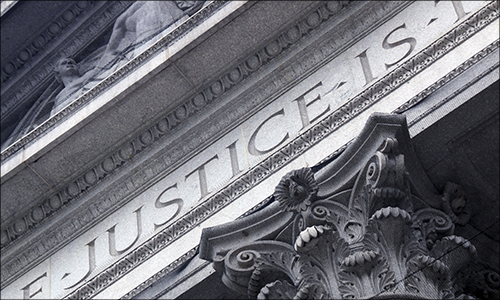THE QUESTION as posed to WUSA9: Will prisoners get the $1,400 stimulus checks in the $1.9 trillion COVID-19 relief bill? THE ANSWER: Yes, inmates qualify for checks, just as they did with the previous two rounds of stimulus checks passed during the Trump administration. But that doesn’t mean they will actually get the money in their own hands. Details below.
WHY USA9 CHOSE TO VERIFY:
Republican Sens. Tom Cotton (R-Ark.), Ted Cruz (R-Texas) and Bill Cassidy (R-La.), criticized the American Rescue Plan Act for providing payments to prison inmates, which they unsuccessfully tried to block. Cotton, on Twitter, decried sending payments to Boston Marathon bomber Dzhokhar Tsarnaev and Emanuel AME Church mass shooter Dylann Roof.
WHAT USA9 FOUND:
None of the three stimulus packages, passed to relieve economic stress from COVID-19, contain language that prevents payments to those who are incarcerated.
That includes the first two signed into law by then-President Donald Trump in 2020, both of which each received yes votes from Cotton and Cassidy; Cruz voted for the CARES Act in March 2020 but not H.R. 133 in December 2020.
Although prisoners have been eligible for stimulus money, that doesn’t mean they’ve actually received it.
With the $1,200 per person stimulus checks provided under the CARES Act, the IRS deducted money for back child support from prisoners’ checks, says attorney Kelly M. Dermody of Lieff Cabraser Heimann and Bernstein. Once the checks landed at prisons, authorities often took out more funds for fees and restitution owed by an inmate, Dermody says. She led the successful class-action challenge on behalf of prisoners and against the Trump administration when the IRS quit sending the checks to prisoners and then demanded that those who got sent checks return the money.
In the second round of stimulus checks, approved in December, the IRS and prisons were barred from taking funds from prisoners’ money, which was sent on debit cards. The catch: the cards were useless for inmates. To receive the stimulus money, the inmates have to fill out a 1040 tax return for 2020 requesting a “recovery rebate.” However, by filing the tax return, prisoners are subject once again to having their checks docked for child support, back taxes, restitution and fees, Dermody says.
On the third round, Dermody says, the eligibility requirements are “the exact same” as for the previous stimulus packages. Still, it’s unclear yet whether child support and other “offsets” will be taken out of the inmates’ funds.
NOTES:
In summary, while incarcerated Americans do qualify for the most recent COVID-19 relief package passed by Congress, it may be difficult for inmates to actually receive the funds. In the previous relief packages, the IRS deducted money for back child support from prisoners’ checks. Once the checks arrived at the prisons, authorities again deducted more funds for prisoner fees and restitution. Lieff Cabraser Managing Partner Kelly Dermody, who led the successful class action that kept relief packages flowing to prisoners, noted that the latest COVID-19 stimulus checks will again pose challenges for some incarcerated Americans as funds will be received in the form of a debit card which is subject to back taxes, back child support, fees, and restitution.
Read the full article at WUSA9 here.
About Kelly M. Dermody
The Chair of Lieff Cabraser’s employment practice group and Managing Partner of Lieff Cabraser’s San Francisco office, Kelly M. Dermody specializes in class and collective actions on behalf of plaintiffs in civil rights, employment, and consumer cases, including gender discrimination cases against Google and Goldman Sachs. Additional case work includes wage suppression claims against technology, healthcare, and academic institutions; overtime and lost pay lawsuits for low-wage workers, I/T professionals, and foreign nationals working for American corporations; and ERISA claims that she has tried on behalf of employees and retirees for pension plan abuses. In 2020, Kelly led the team that successfully challenged the Trump Administration’s improper withholding of CARES Act stimulus funds from incarcerated Americans, leading to the release and distribution of $1.5 billion in stimulus funds, in what may be the single largest recovery for a targeted class from a single lawsuit in history.
Contact us
Use the form below to contact a lawyer at Lieff Cabraser.














